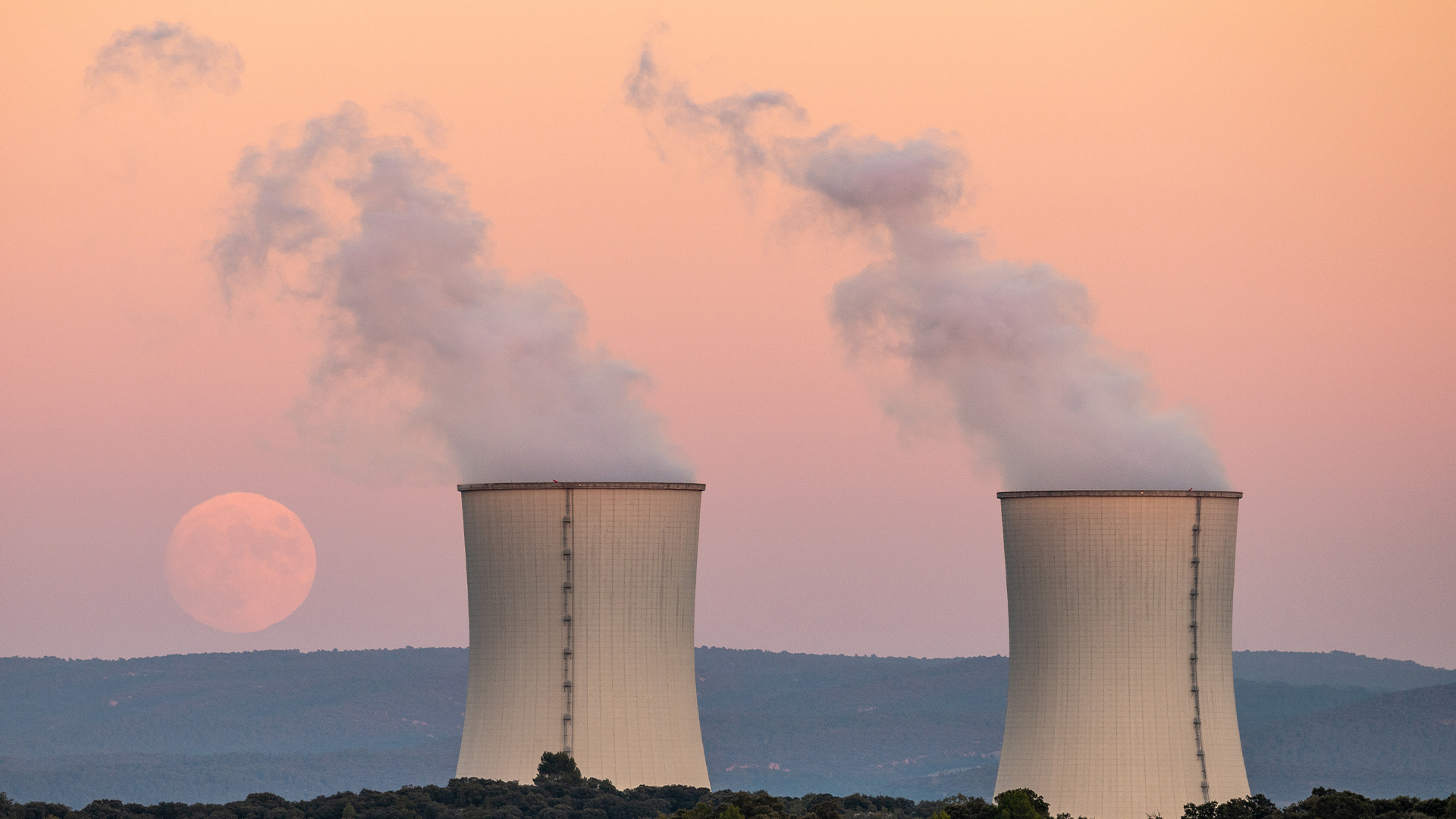AWS dealt major blow in nuclear-powered data center deal after regulators reject upgrade plans
Amazon's deal with Talen to locate a data center at a nuclear power station can continue, but only at original 300 megawatts


US regulators have refused approval for an increase in the amount of energy set to be supplied to an Amazon data center directly connected to a nuclear power plant.
Finding new energy sources has become increasingly necessary as hyperscalers like AWS seek to power the rise of AI. Because of that, in March, AWS shelled out $650 million in a deal with Talen Energy to buy the Cumulus nuclear-powered data center campus, located alongside the 2.5 gigawatt Susquehanna station in Pennsylvania.
That would allow the AWS data center to gain direct access to power from the nuclear plant, meaning it need not tap into the public power grid.
After the deal was announced, local energy providers quickly called for the plans to be scrapped. Talen Energy responded at the time by saying those companies were attempting to "hijack" the plan approvals and turn it into an "ad hoc national referendum on the future of data center load."
This particular ruling from the Federal Energy Regulatory Commission (FERC) regarded a request to increase the approved direct power supply to the AWS site from 300 megawatts to 480, known as an interconnection service agreement (ISA).
Although that has been refused, the project can still continue with the previously authorized 300 megawatts.
AWS’ regulatory ruling
In the filing, FERC said that the plans to increase how much power is doled out to Amazon by Talen could lead to higher bills for local people and warned that it might make the grid less reliable.
Sign up today and you will receive a free copy of our Future Focus 2025 report - the leading guidance on AI, cybersecurity and other IT challenges as per 700+ senior executives
"Co-location arrangements of the type presented here present an array of complicated, nuanced and multifaceted issues, which collectively could have huge ramifications for both grid reliability and consumer costs," wrote FERC Commissioner Mark Christie in the filing.
Talen Energy said in a statement that it believes FERC "erred" in its ruling, insisting the ISA amendment to allow more power to AWS was "just and reasonable and in the best interest of consumers."
"Importantly, the existing ISA allows for 300 megawatts of co-located load at Susquehanna, and development of the first phases of the AWS data center campus can proceed using those 300 megawatts while Talen continues to pursue approval of the amended ISA,” the company added.
Amazon echoed Talen's comments, with a spokesperson telling ITPro: "We remain committed to continue innovating and advancing carbon-free energy solutions with companies like Talen Energy to power data center operations in the United States and the many technologies supporting our customers and our daily lives."
Step backward on AI?
FERC chairman Willie Phillips dissented on the ruling, saying it was a "step backward for both electric reliability and national security”.
Phillips argued that such "first of its kind" colocation setups were worth pursuing despite complexity and risks to avoid "creating unnecessary roadblocks to an industry that is necessary for our national security".
By that, Phillips is specifically referring to AI and the growing data center power consumption rates associated with the technology.
"There is a clear, bipartisan consensus that maintaining US leadership in Artificial Intelligence (AI) is necessary to maintaining our national security," he wrote.
"Maintaining our nation’s leadership in this 'era-defining' technology will require a massive and unprecedented investment in the data centers necessary to develop and operate those AI models.
"And make no mistake: access to reliable electricity is the lifeblood of those data centers. I am deeply concerned that in failing to demonstrate regulatory leadership and flexibility we are putting at risk our country’s pole position on this critically important issue. That is simply unacceptable."
In its statement, Talen said co-location offers upgrades to data centers without costly transmission upgrades, but admitted there are other solutions.
"The data center economy will require an all-of-the-above approach to satisfy the increased demand, including co-location such as Talen’s arrangement with AWS, hybrids that co-locate primary power behind the meter while using grid power for back-up, and front-of-the-meter connections to utility transmission," the company said.
But FERC noted that multiple organizations contributing to the consultation raised the issue of the deal setting a precedent that would allow significant changes to power setups that could "impose costs on other market participants."
Nuclear-powered AI
While this particular project has hit a hurdle, the growing energy needs of AI has sparked a race among major cloud providers to find new energy sources. And that includes nuclear power.
Microsoft, for example, recently signed a deal with Constellation to reopen an unused reactor on the Three Mile Island site while Google has teamed up with Kairos Power on seven small nuclear reactors.
It's not all nuclear, of course. Earlier this year, AWS also signed a deal with Avangrid, a wind farm developer, and last year invested in more than 100 solar and wind energy projects in 2023.
Freelance journalist Nicole Kobie first started writing for ITPro in 2007, with bylines in New Scientist, Wired, PC Pro and many more.
Nicole the author of a book about the history of technology, The Long History of the Future.
-
 What the fragmentation of UC means for the channel
What the fragmentation of UC means for the channelIndustry Insights If communications are becoming fragmented, what does that mean for MSPs and VARs?
-
 How SMBs can DIY their IT implementation and support
How SMBs can DIY their IT implementation and supportFeature For some small and medium-sized businesses, the third-party expertise and support might be out of reach. What’s the alternative?
